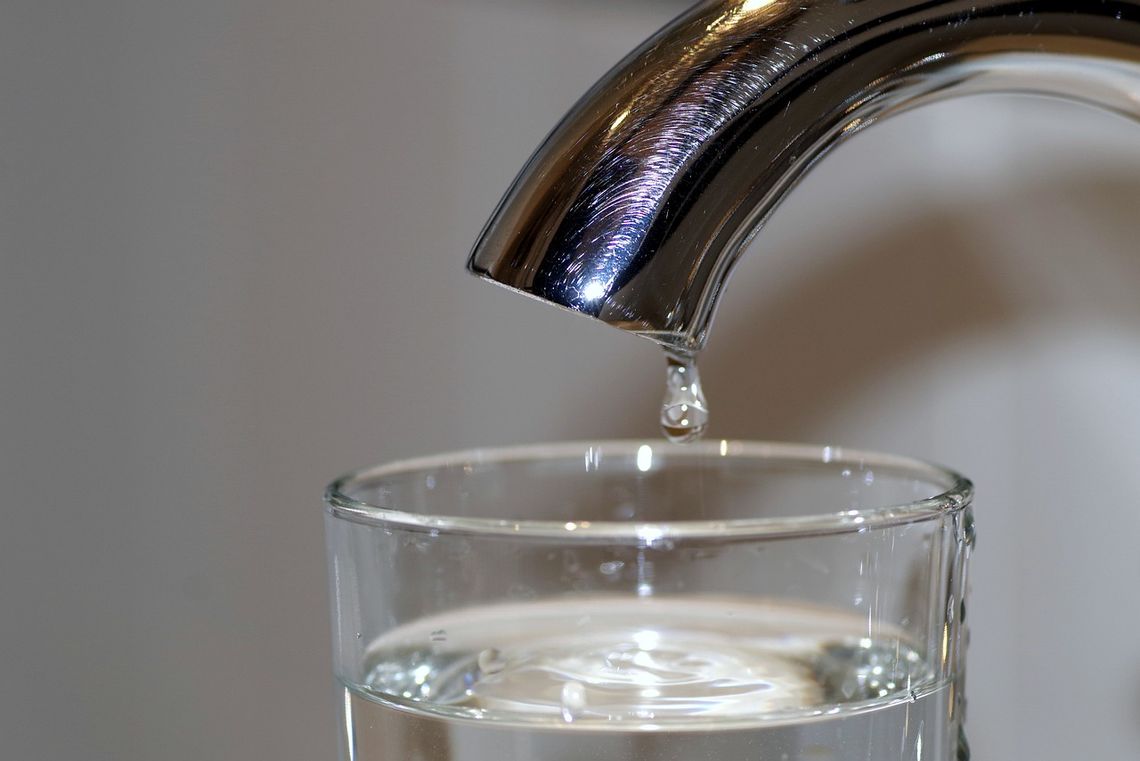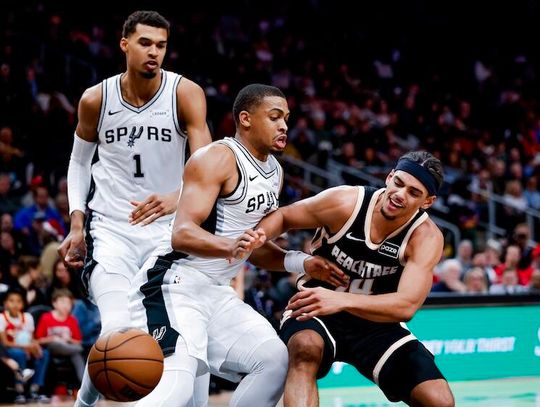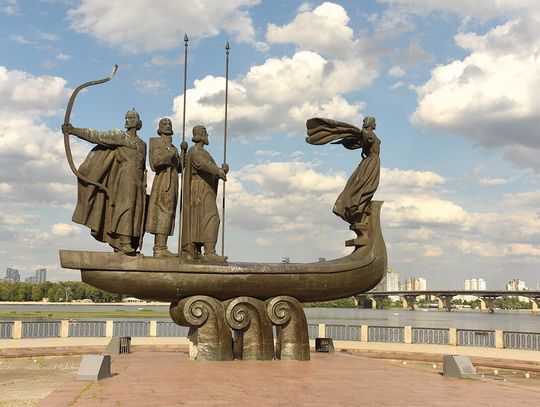When exploring a new city, everything feels different – the weather, the architecture, the people, and even aspects that aren't immediately noticeable, like the city's tap water. Each major city's water supply comes from unique sources, giving it a distinct taste and raising unique safety concerns.
One major threat to tap water safety is e-waste contamination, which leaches toxic substances like lead, mercury, and cadmium into groundwater. These pollutants can infiltrate municipal water supplies when electronic devices are improperly discarded in landfills or other unsuitable sites. This contamination not only impacts the safety of the water but can also alter its taste.
To gain insight into public perception and safety concerns regarding tap water quality in various U.S. cities, ITAMG.com, who provide clean, safe and secure removal of redundant IT assets, surveyed 3,000 seasoned travelers asking them a straightforward question: Would you feel safe drinking the tap water in specific cities across the U.S.?
After analyzing the data, ITAMG.com ranked cities across the country, highlighting those with the best and worst tap water based on travelers' firsthand experiences. The study revealed significant disparities between the actual quality and taste of water and public perception.
The 10 least trusted cities for tap water taste and safety were as follows:
#1 Detroit, MichiganDetroit's tap water is considered the least drinkable among visitors to the city. However, it is sourced from the Detroit River and Lake Huron, and undergoes extensive treatment to meet safety and quality standards. It is generally considered to have a clean and neutral taste, with a slight chlorine taste. The city's perception of the quality of their tap water might be unfairly skewed given its proximity to Flint, which had severe tap water issues in the past. The city actively addresses issues with lead and copper from aging pipes, ensuring the water remains safe for consumption.
#2 New York City, New YorkTravelers voted NYC’s tap water as the second least drinkable in the country. This perception might be unfair, as people often associate large metropolises with pollution and poor-quality tap water. However, NYC's tap water is sourced from protected reservoirs in the Catskill, Delaware, and Croton watersheds. The water undergoes rigorous treatment and testing, exceeding state and federal standards. Many residents and visitors appreciate its purity, making it a preferred choice for drinking straight from the tap.
#3 New Orleans, LouisianaThe third least popular in the country, the tap water in New Orleans has a distinctive taste due to its source from the Mississippi River and the extensive treatment it undergoes. While safe to drink, some visitors might notice a slight earthy or chlorine taste. The Sewerage and Water Board of New Orleans works to maintain water quality, meeting federal safety standards. However, some prefer to use filters to improve taste.
#4 Baton Rouge, LouisianaBaton Rouge’s tap water is generally considered to have a good taste, sourced from the Southern Hills Aquifer. It is naturally filtered and requires minimal treatment, resulting in a clean and fresh taste. The water quality meets or exceeds all federal and state safety standards, and residents typically find it pleasant to drink.
#5 Warren, MichiganThe 5th least popular in the country, Warren's tap water is sourced from the Great Lakes Water Authority and is treated to ensure safety and quality. Residents generally find the water to have a neutral and clean taste, with some noticing a slight chlorine flavor. The city’s water quality reports indicate compliance with all safety standards, making it safe and palatable for everyday use. However, as with Detroit, visitors’ perceptions of its tap water may be tainted by the state’s previous water quality problems.
#6 Grand Rapids, MichiganGrand Rapids' tap water is sourced from Lake Michigan and treated to high standards. The water is known for its clean and crisp taste, with minimal chlorine odor. Regular testing ensures it meets or exceeds safety regulations, and most residents are satisfied with its quality for drinking and cooking.
#7 Allentown, PennsylvaniaAllentown’s tap water, sourced from the Little Lehigh Creek and Lehigh River, is generally well-regarded. It undergoes thorough treatment and regular testing to ensure safety and quality. Visitors might detect a slight chlorine taste, which might contribute to its poor rating among travelers.
#8 College Station, TexasIn 8th place overall, College Station’s tap water is sourced from deep wells in the Carrizo-Wilcox Aquifer and treated to meet safety standards. The water has a generally good taste, though some people visiting may notice a slight chlorine or mineral flavor. The city’s water quality reports confirm compliance with all federal and state regulations, making it safe to drink.
#9 Pembroke Pines, FloridaPembroke Pines’ tap water is sourced from the Biscayne Aquifer and treated to ensure safety and quality. Visitors might find the water to have a neutral taste, though a slight chlorine flavor may be present. The city regularly tests the water to meet all safety standards, and most residents are satisfied with its taste and quality.
#10 Buffalo, New YorkAnd rounding up the top 10, is tap water from NY’s Buffalo. Buffalo’s tap water is sourced from Lake Erie and treated to high standards, resulting in a clean and fresh taste. Regular testing ensures the water meets all federal and state safety regulations. Despite travelers’ lowly opinion, it is considered to be of excellent quality, making it suitable for drinking and everyday use.
4 Illinois cities were identified by travelers as having unsatisfactory tap water. However, as with the national top 10, there was a wide disaparity between public perception and the actual quality and taste of the local tap water:
#18 JolietJoliet’s tap water comes from deep groundwater wells and is treated to comply with safety standards. It has a clean, neutral taste, though some residents may notice a slight mineral flavor. The water quality is generally considered good and safe for drinking.
#20 ChicagoChicago’s water is sourced from Lake Michigan and is known for its high quality and clean taste. It undergoes stringent treatment and frequent testing, resulting in a pleasant flavor with minimal chlorine or chemical notes.
#31 NapervilleNaperville’s tap water, drawn from Lake Michigan, is treated to ensure both safety and quality. It is als known for its clean, pleasant taste, with minimal chlorine or chemical flavors. Regular testing ensures it meets all safety standards.
#66 RockfordRockford’s water is sourced from deep sandstone aquifers and treated to meet safety standards. It has a clean taste with slight mineral or chlorine notes.
1 Illinois city came in the lower half of the rankings, meaning it was among the more highly regarded tap waters in the country. These were:
#209 AuroraAurora’s tap water is sourced from the Fox River and a blend of water from several shallow wells and deep wells, which draw from the Cambrian-Ordovician. Residents generally find the water quality to be good and safe for drinking.
Infographic showing the least popular tap water in American cities, according to visitors
"This study underscores the wide gap between perception and reality when it comes to tap water safety and quality," said Richy George from ITAMG.com. "It's crucial to address e-waste contamination in American cities to ensure safe drinking water for everyone. Proper disposal and recycling of electronic waste can significantly reduce the risk of toxic substances entering our water supplies."
(Komunikat prasowy)











